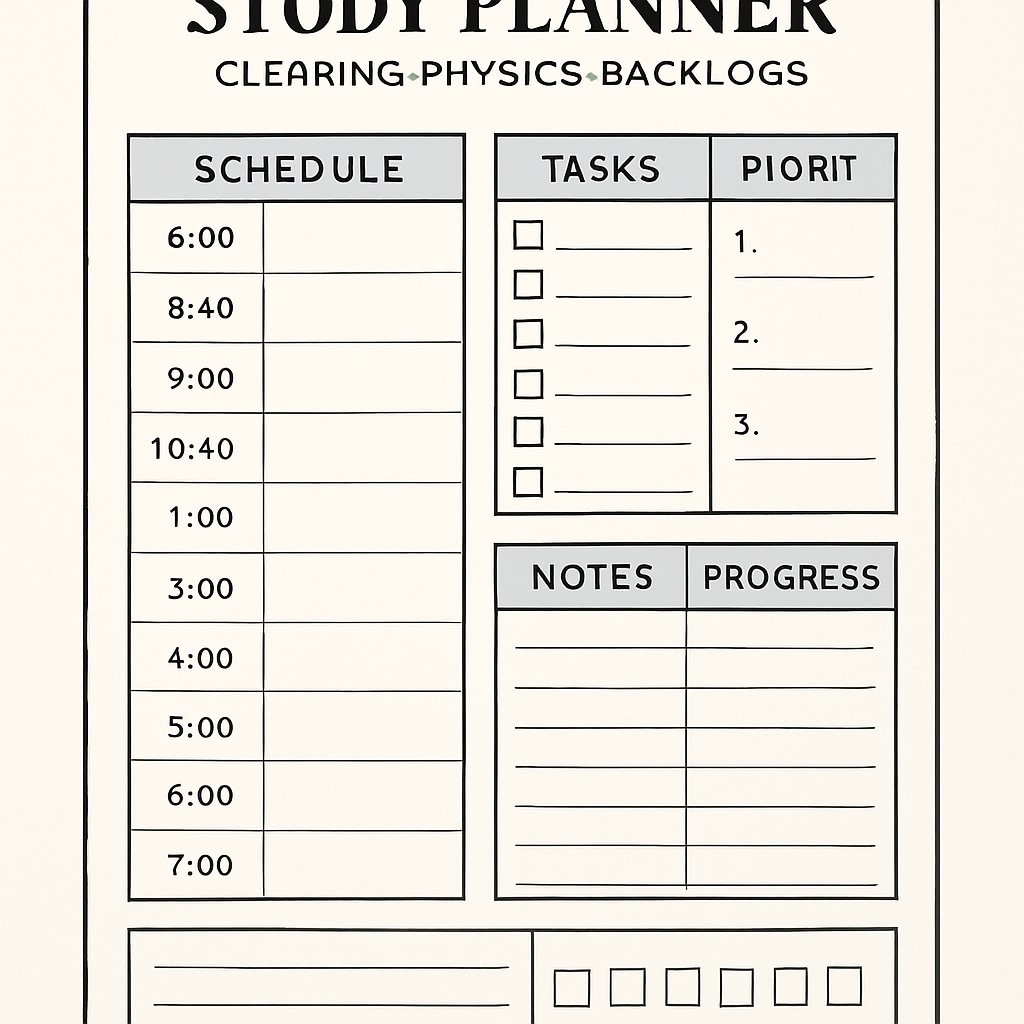For students pursuing a BSc in Physics, handling backlogs can be a daunting challenge, especially when time is limited. Effective time management, combined with a systematic approach to learning, can help overcome these obstacles and ensure success, even during a final attempt. This article provides practical strategies to manage academic backlogs, strengthen conceptual understanding, and build a solid foundation for advanced studies.
Understanding the Challenge of Physics Backlogs
Physics, as a subject, demands both conceptual clarity and practical application. Backlogs often arise when students fail to grasp foundational principles, leading to cascading difficulties in advanced topics. Common causes include poor time management, lack of consistent practice, and underestimating the importance of early preparation. Recognizing these challenges is the first step toward addressing them.

Time Management: A Critical Skill in Overcoming Backlogs
Time management is crucial when dealing with multiple backlogs. Here are some actionable steps to optimize your time effectively:
- Prioritize Topics: Identify high-weightage topics and focus on them first. This ensures that your effort yields maximum results.
- Create a Study Schedule: Divide your available time into focused study blocks, allocating specific slots for each subject or topic.
- Avoid Multitasking: Concentrate on one topic at a time to improve retention and understanding.
- Set Realistic Goals: Break down your syllabus into manageable chunks and set achievable daily or weekly goals.
For example, if you have three months until exams, dedicate the first month to revising foundational concepts, the second month to problem-solving, and the final month to mock exams and review.

Building Conceptual Understanding in Physics
Clearing backlogs requires more than rote memorization; it demands a deep understanding of core principles. Here’s how you can improve your conceptual grasp:
- Review Fundamentals: Revisit basic concepts from previous grades or introductory chapters. Resources like Physics on Wikipedia can be valuable.
- Utilize Visual Aids: Diagrams, flowcharts, and videos help simplify complex topics and improve retention.
- Practice Problem-Solving: Work through a variety of problems, focusing on both numerical and theoretical questions.
- Seek Guidance: Consult teachers, peers, or online resources for clarification. Websites like Britannica’s Physics section can provide detailed explanations.
Practical Tips for Excelling in Your Final Attempt
If you’re on your final attempt, the pressure to succeed can be overwhelming. Here are some strategies to maximize your chances:
- Mock Exams: Simulate exam conditions to test your knowledge and improve time management.
- Focus on Weak Areas: Spend additional time on topics where you struggle the most.
- Stay Consistent: Regular study sessions are more effective than last-minute cramming.
- Maintain a Positive Mindset: Confidence and a clear focus can significantly impact your performance.
In addition, ensure that you maintain a healthy routine, including proper sleep, nutrition, and exercise, as physical well-being directly affects cognitive function.
Conclusion: Turning Backlogs into Opportunities
While backlogs in BSc Physics can feel like insurmountable hurdles, they also present an opportunity to revisit and master essential concepts. By implementing effective time management practices, focusing on conceptual clarity, and maintaining a structured approach, students can overcome these challenges and excel in their final attempt. Remember, persistence and a clear strategy are key to academic success.
As you work towards clearing your backlogs, keep in mind that every effort you invest now will contribute to a stronger foundation for future studies and career growth. Stay determined, and success will follow.


